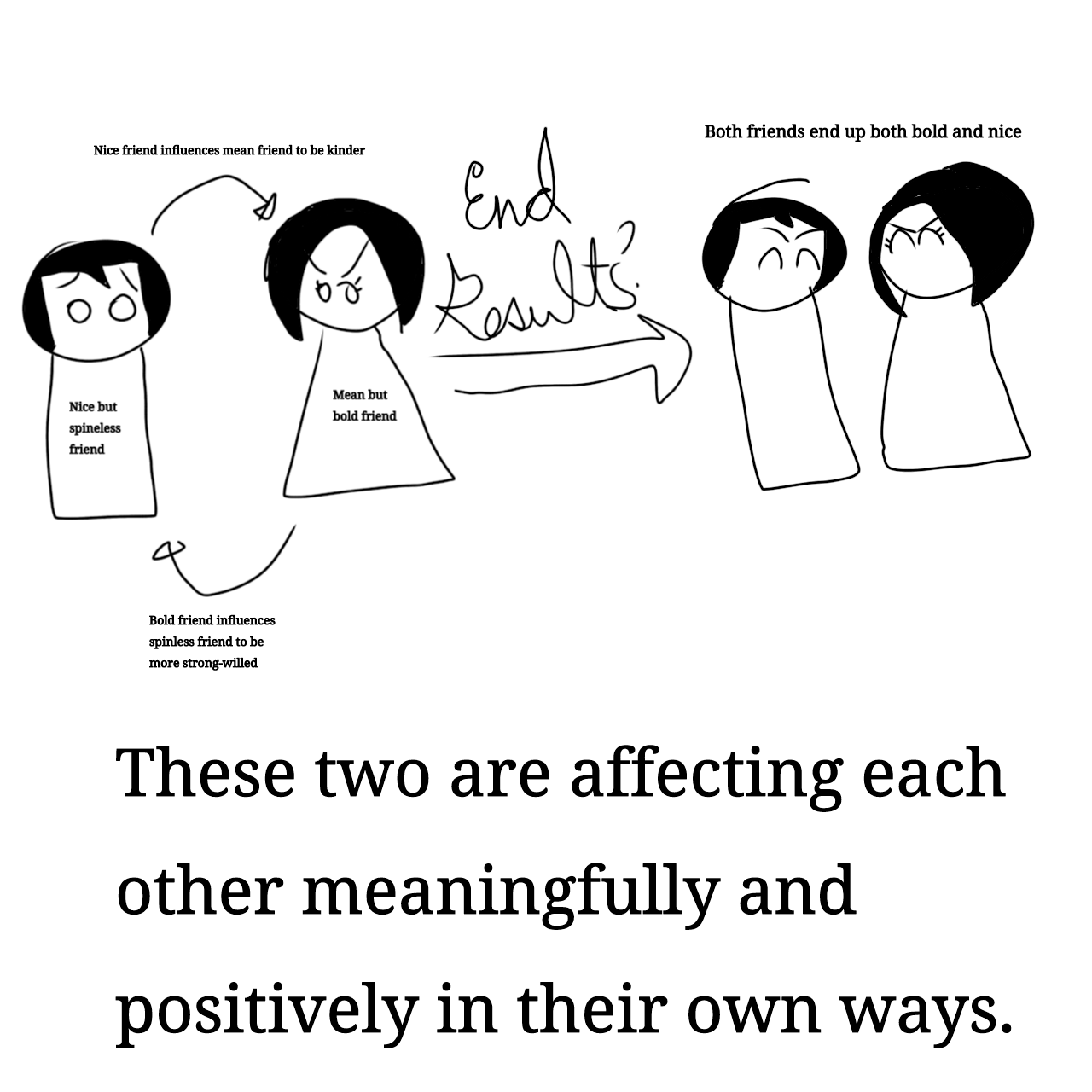Thankfully they didn't end both mean and spineless.
Explaining the dialectic triad can be complicated (as it is to explain anything coming from Hegel) especially as I have found that simplifying your explanation too much can distort the idea you are trying to transmit, but often I find success explaining hegelian dialectics the way Hegel intended (as the constant movement forward of ideas) and the way I had it explained to me: gravitational theory.
- Aristotle began explaining objects falling to the ground as the result of a force (gravitas) that attracted objects towards the centre of the universe (for him, the Earth). He also observes that gravity pulls with a greater force objects that are heavier. These ideas form the thesis.
- Copernicus then says that the Earth is not the centre of the universe. This idea is a direct contradiction to Aristotle's, and thus an antithesis.
- Galileo then states that gravity pulls all objects at the same, constant acceleration, thus creating another antithesis to Aristotle's thesis.
- Newton then gathers the developments made by the three (Aristotle's gravitas, Copernicus' heliocentrism and Galileo's constant acceleration) and develops a theory in which he explains how the universe moves and spins thanks to gravity. The synthesis is thus formed when from the clash of these ideas arises a new one, more advanced than the ones it originated from.
After this you can then explain how Marx refuses this explanation to be applied only to ideas, brings dialectics to the material world and so on and so on.
